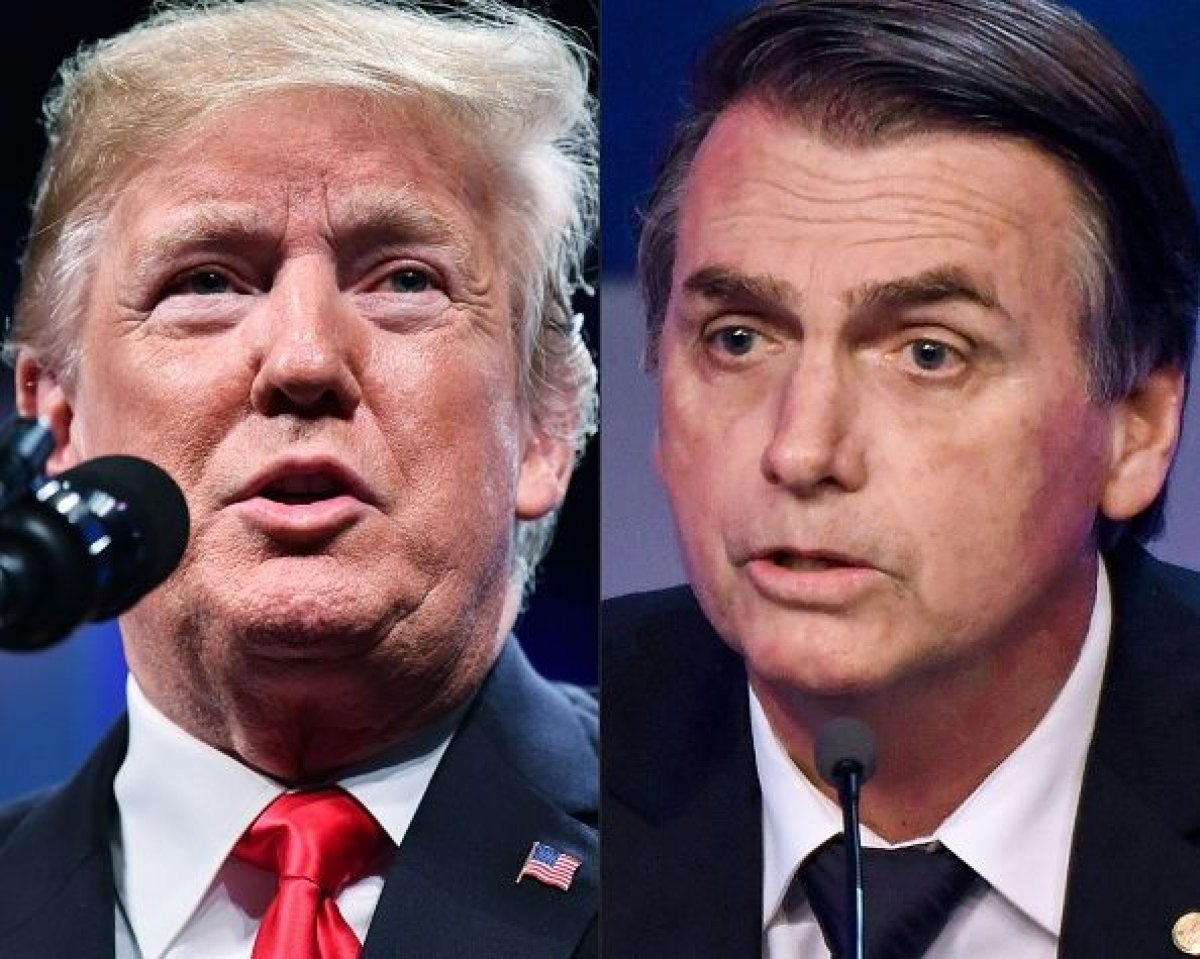Far-right populists have made significant inroads everywhere from South America to Southern Europe, whereas centrist, liberal governments have taken a hit.
On Monday, German Chancellor Angela Merkel—long touted as the liberal west's most stalwart defender after the election of Donald Trump signaled the U.S. leadership was turning away from international multilateralism—announced that she would not seek re-election as chancellor of Germany in 2021.
Meanwhile, far-right populist candidate Jair Bolsonaro was elected on Sunday as Brazil's new president. Bolsonaro has defended his country's military dictatorship, which ruled from 1964 to 1985, and expressed support for the use of torture.
Over the past year, populist governments have won elections in countries such as Italy and Hungary, and the far right has made strides in elections in Germany and Sweden.
Merkel's decision to relinquish her role as the head of Germany's largest political party was widely considered a response to the rise of right-wing parties sparked by the chancellor's liberal policy toward refugees. Liberal democracy had been the most popular form of government worldwide for decades, but some analysts say it is no longer ascendant.
"The U.S. was always willing to work with dictatorships when it was deemed a necessity, but it always had a preference for liberal democracies. Under Trump, that's no longer the case. Since the end of World War II, liberal democratic ideas have been hegemonic; you could see that in dictators who pretended to be democratic. Now we may be approaching a tipping point at which democratic ideas are no longer sufficiently popular, and that could have big consequences," Yascha Mounk, a lecturer at Harvard University and an expert on populism and the crisis of liberal democracy, told Newsweek.

"The scary thing is, we just generally don't know. It's absolutely possible that this will be a strange relatively short period of democratic crisis that will be succeeded by a democratic resurgence. It's also possible this is the beginning of a different era in which democracy will fade," Mounk continued.
Bolsonaro said he would defend democracy and liberty, but some of his previous statements raise questions as to whether he respects democracy at all. Brazil's new president famously said that the Brazilian dictator's biggest mistake was "to torture and not kill."
Bolsonaro has been described as Brazil's answer to Donald Trump, a candidate once considered too inexperienced and too divisive to be taken seriously but who took the world by surprise with his electoral win. Unlike Trump, however, Bolsonaro has a military background, and some warned that Brazil was at serious risk of once again becoming a violent dictatorship. What is certain is that security forces will be given increased authority as the new president rides in on a global wave of discontent with the governing elites.
"Bolsonaro's election yesterday is a sea change for Brazil. The rejection around the world of the political establishment has clearly come to Brazil, and the embrace of candidates who are willing to buck the system as well as overturn norms, historical norms in a country, has also resurfaced," Jason Marczak, director of the Atlantic Council's Latin America Center, told Newsweek. "He is a result of Brazilian's dissatisfaction with the status quo, people being angry with corruption, violence, and the direction the country is going in."
Meanwhile, many around the world will be watching the upcoming U.S. midterm elections in November and the European parliamentary elections in May 2019 for signs of what is to come. Fringe parties on the far right, many of which are Euro-skeptic, are expected to do well in the upcoming European elections.
"Many here in Europe see the U.S. midterms as a bellwether to see if Trump is something transient or something they will have to deal with in the long run. The European elections are coming up in the late spring. This will be another key test, and it's expected that parties on the margin will make gains—the Greens and the extreme right," Ian Lesser, vice president of foreign policy for the German Marshall Fund in the European Union's capital Belgium, told Newsweek. "I think the concern is that people who want to see this as a value-based movement are in retreat."
Had a very good conversation with the newly elected President of Brazil, Jair Bolsonaro, who won his race by a substantial margin. We agreed that Brazil and the United States will work closely together on Trade, Military and everything else! Excellent call, wished him congrats!
— Donald J. Trump (@realDonaldTrump) October 29, 2018
France's President Emmanuel Macron was once hailed as another savior of the liberal world order, a defender of free trade and multilateralism and a counterbalance to Trump. But his popularity slumped quickly in the first year of his presidency. The German Marshall Fund's Lesser pointed to Spain's new center-left Prime Minister Pedro Sanchez and Greece's center-right opposition leader Kyriakos Mitsotakis as up-and-coming leaders who espoused more traditional centrist policies. Nevertheless, the populists are the ones who appear to have the most momentum.
"The Brazilian election shows populism continues to be on the rise," Mounk said. "It's a mistake to think that each election in which populists don't win outright means that populism has ended. People said that after Sweden's elections, but the far right made inroads. If we look at elections in the aggregate, everywhere from Hungary to Italy, populism is on the rise."
Uncommon Knowledge
Newsweek is committed to challenging conventional wisdom and finding connections in the search for common ground.
Newsweek is committed to challenging conventional wisdom and finding connections in the search for common ground.
About the writer
Cristina Maza is an award-winning journalist who has reported from countries such as Cambodia, Kyrgyzstan, India, Lithuania, Serbia, and Turkey. ... Read more
To read how Newsweek uses AI as a newsroom tool, Click here.








